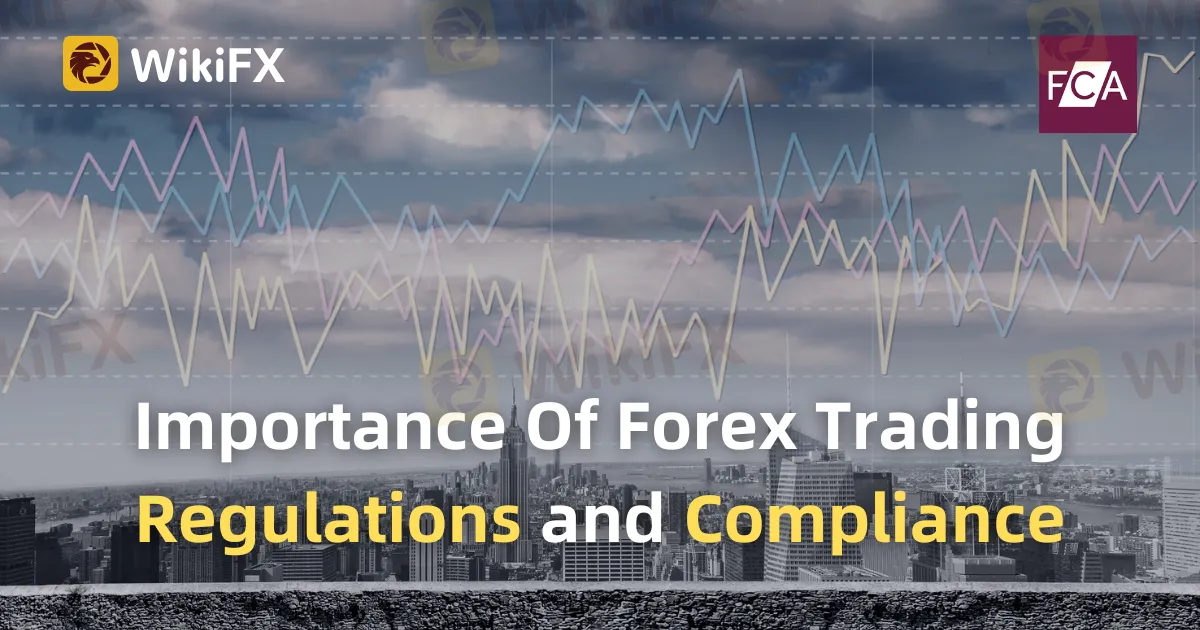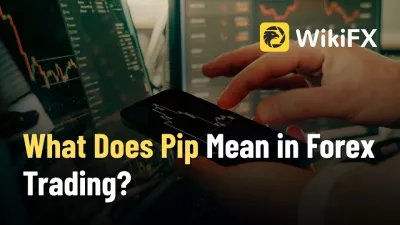Celebrate the New Year and Usher in a Safer 2026 for All Traders!
As the new year begins, WikiFX extends our sincere gratitude to traders worldwide, our industry partners, and all users who have consistently supported us.
简体中文
繁體中文
English
Pусский
日本語
ภาษาไทย
Tiếng Việt
Bahasa Indonesia
Español
हिन्दी
Filippiiniläinen
Français
Deutsch
Português
Türkçe
한국어
العربية
Abstract:Forex trading is a complex financial activity that involves buying and selling currencies from different countries. The foreign exchange market is a decentralized market where transactions take place over the counter (OTC), which means that trades are not processed through a centralized exchange like the stock market.

Forex trading is a complex financial activity that involves buying and selling currencies from different countries. The foreign exchange market is a decentralized market where transactions take place over the counter (OTC), which means that trades are not processed through a centralized exchange like the stock market. Due to the decentralized nature of forex trading, it is essential to have regulations and compliance guidelines in place to protect traders, investors, and the overall financial system.
Forex regulations and compliance guidelines are designed to ensure that market participants operate within a set of ethical and legal boundaries. These regulations help to maintain market integrity and stability and to prevent fraudulent activities such as money laundering and terrorism financing. The global nature of forex trading means that regulations and compliance guidelines can vary from country to country, making it important for traders to be aware of the specific rules and regulations in their jurisdiction.
Regulations are typically implemented by government bodies, such as the Securities and Exchange Commission (SEC) in the United States, the Financial Conduct Authority (FCA) in the United Kingdom, and the Australian Securities and Investments Commission (ASIC) in Australia.
These regulatory bodies work to ensure that forex brokers and other financial institutions operate in a transparent and fair manner. They also have the power to investigate and punish any wrongdoing in the market.
Compliance guidelines, on the other hand, are established by industry organizations, such as the International Swaps and Derivatives Association (ISDA) and the Foreign Exchange Professionals Association (FXPA). These organizations work to establish best practices for market participants, including forex brokers, traders, and investors. Compliance guidelines may cover areas such as risk management, trade execution, and transparency.
One of the key regulations in forex trading is the requirement for brokers to be licensed and regulated by a government authority. In the United States, forex brokers must be registered with the National Futures Association (NFA) and the Commodity Futures Trading Commission (CFTC). In the European Union, brokers must be authorized and regulated by the European Securities and Markets Authority (ESMA). These regulations help to ensure that brokers meet minimum capital requirements and adhere to strict operational standards.
Another important regulation in forex trading is the requirement for brokers to segregate client funds from their own funds. This means that client funds are kept in separate accounts and are not used to cover the broker's operational expenses. This helps to protect client funds in the event that the broker becomes insolvent.
In addition to regulations, compliance guidelines play an important role in ensuring market integrity. For example, the FX Global Code, which was established by the Bank for International Settlements (BIS) in 2018, outlines best practices for market participants in the foreign exchange market. The code covers areas such as ethics, governance, information sharing, and execution. Adherence to the code is voluntary, but many market participants have pledged to adopt its principles.
On the other hand,
WikiFX a Hongkong based web application provides important information about forex brokers' regulations and licenses with connections to 30 financial authorities across the globe. It is also a medium platform for traders in exposing brokers' illegal activities that made the traders lose their money.

Using WikiFX more often will give you peace of mind in avoiding landing on fraud brokers.
In conclusion, forex trading regulations and compliance guidelines are essential for maintaining market integrity and stability. They help to protect traders, investors, and the financial system as a whole from fraudulent activities and other wrongdoing. Traders and investors should be aware of the specific rules and regulations in their jurisdiction and should work with licensed and regulated brokers to ensure their funds are protected. By adhering to best practices outlined in compliance guidelines, market participants can help to ensure a fair and transparent forex trading environment.
Install the WikiFX App on your smartphone to stay updated on the latest news.
Download link: https://www.wikifx.com/en/download.html?source=fma3

Disclaimer:
The views in this article only represent the author's personal views, and do not constitute investment advice on this platform. This platform does not guarantee the accuracy, completeness and timeliness of the information in the article, and will not be liable for any loss caused by the use of or reliance on the information in the article.

As the new year begins, WikiFX extends our sincere gratitude to traders worldwide, our industry partners, and all users who have consistently supported us.

Dear Forex Traders, When choosing a forex broker, have you ever faced these dilemmas? Dozens of broker advertisements, but unsure which one is truly reliable? Online reviews are either promotional content or outdated/incomplete? Want to learn about real users’ deposit/withdrawal experiences but can’t find firsthand accounts? Now, your experience can help thousands of traders and earn you generous rewards! The campaign is long-term and you can join anytime.

Markets turn cautious as investors await the Fed’s December meeting minutes. The US Dollar stabilizes near 98.10, gold drops sharply from record highs, while GBP/USD, EUR/USD, and USD/JPY react to central bank signals.

In forex trading, a pip is the smallest unit of price movement between two currencies. It’s used to measure changes in exchange rates, calculate profits or losses, and manage trading strategies effectively.
